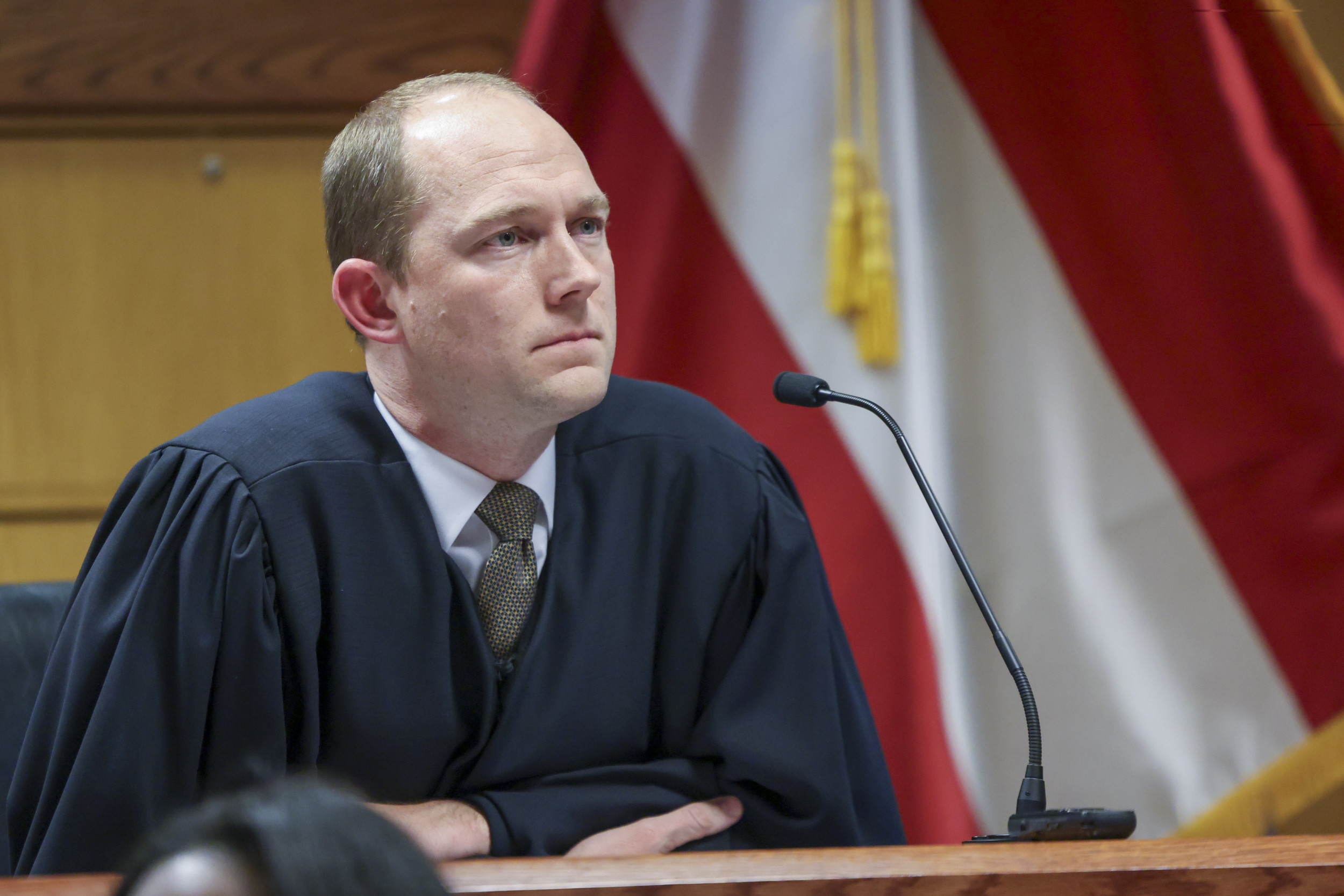The final daily press conference of the 2022 Beijing Olympics ended on a tense note on Thursday, just three days before the closing of the games, when the International Olympic Committee failed to stop a Chinese Olympic official from interjecting during a number of politically sensitive questions.
Yan Jiarong, of the Beijing Organizing Committee for the Olympic Games (BOCOG), had the final say on topics related to Taiwan and Xinjiang, while IOC spokesperson Mark Adams insisted the games were a platform for cooperation between nations, despite political disagreements outside of the competition.
The IOC believes sports and politics should not mix.
Following a reporter's question about Taiwan and the island's claim that it was forced to take part in the opening and closing ceremonies of the Winter Olympics or face sanction under to the Olympic Charter, Adams said all National Olympic Committees are obliged to participate in the events.
Taiwan, known by the formal name the Republic of China, has competed under the ambiguous banner of "Chinese Taipei" since 1981, a decade after it was expelled from the United Nations in favor of the People's Republic of China.
"This is something that we really have to take a very solemn position [on]," said Yan, intervening in English before reading from prepared remarks in Chinese. "There is only one China in the world. Taiwan is an indivisible part of China," she said through an interpreter. "We are always against the idea of politicizing the Winter Olympic Games."
Adams didn't appear to anticipate the exchange but had this to say when pressed on the political nature of the BOCOG official's comments: "Our concern here is with the 206 National Olympic Committees ... There are many views on all sorts of things around the world, but our job is to make sure that the games take place."

When another journalist asked whether Adams was confident that IOC uniforms made by Olympic sponsor Anta—a Chinese sports apparel brand—didn't include products made by Uyghur forced labor, the committee spokesperson answered 'yes.'
"None of the production took place in Xinjiang, nor [did] any of the input or raw materials come from that region," said Adams.
"To make it clear, none of those materials used in our Anta sports uniforms contains any cotton, only recycled polyester, nylon and acrylic." The IOC's formal attire, he said, was made with cotton sourced from outside China.
The Chinese government has consistently denied reports by human rights groups and testimonies by survivors of mass internment camps in northwest China, where the United States and other Western governments believe human rights violations amounting to genocide are taking place against the local population of Uyghurs and other mainly Muslim minorities groups.
These assessments include claims that Uyghurs are subjected to forced labor in the production of cotton, while the conditions in Xinjiang were also central in the decision by major capitals to join a diplomatic boycott of the games.
After Adams answered, the BOCOG spokesperson interjected once more. "I feel obliged to make a very quick comment," said Yan, before switching to Chinese. "I think the so-called forced labor in Xinjiang is lies made up by deliberate groups. The relevant organizations have provided large amounts of facts to dispute that."
She later would intervene on the topic a second time, describing questions about Xinjiang as "based on lies" and "false information" that had been disputed with "solid evidence."
"It's a view from Madam Yan. I don't think it's particularly relevant to this press conference. It's certainly not relevant to the IOC," Adams said. "We are very, very concerned about protecting human rights within our sphere, which is within the Olympic Games ... We leave it to other organizations, the United Nations, international organizations, to look at aspects outside of what is happening here."
The press event—the last until a final BOCOG briefing ahead of the closing ceremony on Sunday—also featured an appearance by Wei Yining, who is one of the 19,000 volunteers working with athletes and organizers inside the closed loop of the Beijing Games.
She unexpectedly was asked about Chinese tennis player Peng Shuai, the allegations she made against a high-ranking former government official, as well as her well-being in the country.
Pausing for a moment to listen to the translation in her right ear, Wei said: "I'm sorry, I don't really know that."
Uncommon Knowledge
Newsweek is committed to challenging conventional wisdom and finding connections in the search for common ground.
Newsweek is committed to challenging conventional wisdom and finding connections in the search for common ground.
About the writer
John Feng is Newsweek's contributing editor for Asia based in Taichung, Taiwan. His focus is on East Asian politics. He ... Read more





